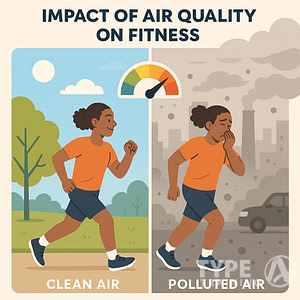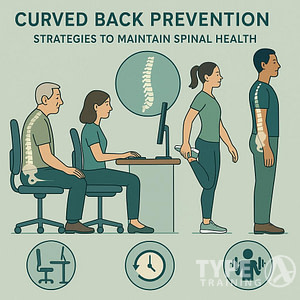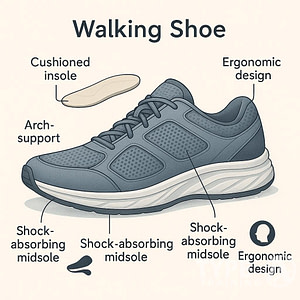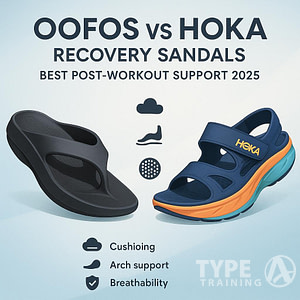Detox diets and cleanses have surged in popularity with the promise of eliminating toxins from your body and boosting your overall health. These diets often involve consuming specific foods, drinks, or supplements thought to aid in detoxification. However, scientific evidence does not support the effectiveness of detox diets in genuinely cleaning your body.
Although some people report feeling better and losing weight during a detox or cleanse, these effects are typically short-lived. The restrictive nature of these diets may also contribute to other health issues if maintained for too long. For instance, some detox products can contain harmful ingredients, making it essential to proceed with caution.
If you are considering a detox or cleanse, it is crucial to consult a healthcare professional to ensure it is safe for you. The best approach to maintaining a healthy body is a balanced diet, proper hydration, and regular exercise. For more in-depth information, you can read about the pros and cons of these practices on the Cleveland Clinic website.
Popular posts:
Exploring Detox Diets
Detox diets are often promoted as a way to remove toxins from the body. Understanding their basics and exploring different types can provide clarity on their efficacy.
Understanding the Basics
Detox diets claim to cleanse the body of harmful substances. These diets often involve periods of fasting, limiting food intake to juices, fruits, and vegetables. Proponents argue that such restrictions allow the body to eliminate toxins more effectively, giving the digestive system a break.
Many experts, including those at Healthline, argue that the human body is naturally equipped with its own detoxification systems, such as the liver and kidneys. There is little scientific evidence to support the claim that detox diets significantly enhance this natural process. Moreover, these diets can sometimes lead to side effects like hunger, fatigue, and nutrient deficiencies.
Types of Detox Diets
Juice Cleanses: These involve consuming only fruit and vegetable juices for several days. The idea is that fresh juices provide vitamins and minerals while reducing calorie intake. However, this type of cleanse can lead to low energy and blood sugar levels.
Smoothie Cleanses: Similar to juice cleanses, but these incorporate the fiber from fruits and vegetables, potentially offering more sustained energy levels. Smoothies may be more filling, but they still lack a balance of essential nutrients.
Fasting: This approach may include intermittent fasting or more prolonged fasting periods. While fasting can give the digestive system a rest, it might also cause dizziness and weakness due to reduced calorie intake.
Herbal Detoxes: Often relying on teas and supplements, these detoxes claim to purge toxins through increased urine production and bowel movements. The effectiveness and safety of herbal detoxes can vary widely and may not be suitable for everyone.
Each type of detox diet has its unique methods and claimed benefits. However, moderation and a balanced approach are key to maintaining overall health.
The Science Behind Detoxification
Detoxification is a critical process where your body removes harmful substances. Key organs, primarily the liver and kidneys, play significant roles in filtering out toxins from your blood.
How Detoxification Works
Detoxification involves the conversion of harmful substances into less toxic or more easily excretable forms. This process often begins in the liver, which can metabolize toxins through a series of chemical reactions. Enzymes in the liver help convert fat-soluble toxins into water-soluble substances, making it easier for your body to eliminate them.
Once converted, these toxins are transported to the kidneys or the intestines for final elimination. Your kidneys filter out the water-soluble toxins and excrete them in urine. Additionally, some toxins are excreted through bile and leave the body via feces. This multi-step detox process is essential for maintaining your overall health.
Role of the Liver and Kidneys
The liver functions as the primary detoxification organ in your body. It uses specialized enzymes to metabolize and neutralize harmful substances. These enzymes help break down toxins, so they are no longer harmful and can be safely excreted.
Kidneys, on the other hand, are responsible for filtering blood and removing excess waste products. They work continuously to ensure that toxins are excreted through urine. By filtering out these harmful substances, the kidneys help maintain a balanced internal environment.
In addition to detoxification, the kidneys regulate fluid balance, electrolytes, and
Nutritional Aspects of Cleanses
Cleanses can significantly impact nutrient intake and the balance of macronutrients and micronutrients. It’s crucial to understand these aspects before deciding to embark on a detox program.
Impact on Nutrient Intake
Most detox diets emphasize liquid consumption, such as fruit and vegetable juices, special waters, or teas. This leads to a reduction in solid food intake, which can cause a decrease in fiber, protein, and healthy fats.
Without adequate fiber, your digestive health might suffer. Proteins are crucial for muscle maintenance and repair, which typically get neglected during liquid-only cleanses. Fruit and vegetable juices often lack essential fatty acids needed for cell function and hormone production.
These diets may provide an abundance of vitamins and antioxidants but lack minerals and electrolytes. This imbalance can result in fatigue and decreased immune function. According to Healthline, your body is already equipped to manage toxins without the need for extreme dietary changes.
Balancing Macronutrients and Micronutrients
Ensuring a balance of macronutrients (carbohydrates, proteins, and fats) is challenging during a cleanse. Carbohydrate intake skyrockets because juices are often high in fructose. This leads to blood sugar spikes and subsequent crashes, affecting your energy levels.
Proteins and fats remain minimal, limiting the body’s ability to function optimally. According to WebMD, many people experience low energy due to nutrient-poor diets. Micronutrients, like vitamins and minerals, become unevenly distributed.
Though cleanses might be high in vitamins like C and A, they often miss out on iron, zinc, and magnesium. It’s vital to ensure proper nutrient intake to avoid long-term health issues.
Potential Health Benefits
Detox diets and cleanses are often marketed for their potential to aid in weight loss and improve your digestive system function. Here is a detailed look at how they might contribute to these aspects of your health.
Weight Loss and Metabolism Boost
Following a detox diet may help you lose weight quickly, primarily due to a significant reduction in caloric intake. Most detox plans limit your food variety and emphasize consuming fruits, vegetables, and other low-calorie foods.
This calorie deficit can lead to quick weight drops, which might be appealing if you’re looking for short-term results.
Certain detox diets claim to boost your metabolism through the intake of specific foods or supplements. Ingredients like green tea, lemon, and cayenne pepper are often cited for their thermogenic properties, potentially increasing your metabolic rate.
However, scientific evidence supporting these claims is limited. Any weight loss achieved is typically temporary and may be quickly regained once normal eating patterns resume.
Improved Digestive System Function
A common claim of detox diets is that they help improve your digestive system function by eliminating processed foods and focusing on high-fiber options like fruits, vegetables, and whole grains.
This increase in fiber can promote regular bowel movements, potentially easing constipation and supporting a healthier gut environment.
Hydration is also a key component of many detox programs, with an emphasis on water, herbal teas, and fresh juices. Proper hydration supports overall digestive health by aiding in the absorption of nutrients and promoting smooth digestion.
While some people experience short-term digestive benefits, such as reduced bloating, it’s crucial to recognize that these effects might not last without sustainable dietary changes.
Risks and Side Effects
Detox diets and cleanses may promise rejuvenation and health, but they come with significant risks and side effects that can affect your well-being. Awareness of potential physical reactions and long-term health implications is crucial.
Recognizing the Side Effects
Detox diets often lead to dehydration due to their commonly restrictive nature, which can result in symptoms like headaches and fatigue. Frequent diarrhea is a common consequence of many detox plans, particularly those involving colon cleanses, which can exacerbate dehydration and lead to an imbalance of electrolytes.
Other side effects include cramping and nausea. These symptoms are not only uncomfortable but can also disrupt your daily activities. Indeed, severe cramping and nausea are sometimes reported during stringent detoxes, making it difficult to maintain normal functions.
Fatigue is another frequent complaint. Since detox diets sometimes lack essential nutrients, your energy levels can plummet, affecting both mental and physical performance. Low blood sugar levels are often experienced, leading to dizziness and irritability.
Long-Term Health Risks
Long-term adherence to detox diets can pose serious health risks.
The repeated cycle of restrictive eating and extreme fasting can damage metabolism. This can cause long-lasting effects that may make weight management more challenging later.
Moreover, these diets often lack necessary vitamins and minerals, leading to nutritional deficiencies. Such deficiencies can impair bodily functions, potentially impacting bone health, immunity, and muscle mass.
There’s also a risk of dependency on laxatives or colon cleanses, which can disturb normal digestive functions. Using these methods frequently may lead to chronic gastrointestinal issues, such as irritable bowel syndrome.
Finally, extreme detox practices can strain essential organs like the liver and kidneys. Contrary to claims that detox diets help these organs, the added stress from lack of nutrients and repeated fasting can hinder their function over time.
Evaluating Detox Products
When considering detox products, it’s important to look at the claims made by commercial cleanses and the safety and regulation standards set by the FDA.
Commercial Cleanses and Supplements
Commercial detox products include a variety of cleanses and supplements. Many promise to rid your body of toxins, improve liver function, and enhance overall well-being. Products on the market range from juicing kits to detox teas and pills.
It’s essential to scrutinize the ingredients and understand their effects.
Some cleanses rely heavily on diuretics or laxatives, which can lead to dehydration or electrolyte imbalances. Other supplements may contain herbs or compounds that lack sufficient scientific backing for their purported benefits.
When choosing a detox product, be wary of anything that guarantees extreme or rapid results. Always consult healthcare professionals before starting any detox regimen to ensure it aligns with your health needs.
FDA Regulations and Safety Concerns
The FDA does not approve dietary supplements or detox products before they are marketed. Manufacturers are responsible for ensuring their products are safe and effective, but this doesn’t always guarantee safety. There have been cases where detox products contained harmful ingredients or were contaminated.
You should be cautious with products making bold claims, especially if they lack transparent labeling. The FDA can take action against unsafe products, but this is often reactive rather than proactive. Remember that supplements and cleanses are meant to support a healthy lifestyle, not replace it. Pay attention to any reported side effects or concerns regarding the detox products you are considering.
For more information on detox diets and safety, refer to relevant articles from Healthline and US News Health.
Practical Tips for Detoxing
Enhancing your body’s natural detoxification processes involves making specific lifestyle and dietary changes. Focus on consuming nutrient-dense foods and maintaining a balanced approach to rest and exercise.
Incorporating Whole Foods and Hydration
A diet rich in whole foods supports detoxification. Include fruits, vegetables, whole grains, and lean proteins to provide essential nutrients. Leafy greens, such as spinach and kale, are particularly high in antioxidants that help neutralize toxins.
Drink plenty of water to help your kidneys flush out waste. Aim to consume at least 8 glasses of water daily. Herbal teas and fresh fruit juices can also contribute to hydration, enhancing your body’s natural detox pathways. Adding nuts and seeds to your diet provides beneficial fats and fiber, aiding digestive health and detoxification.
Rest, Exercise, and Natural Detoxification
Regular exercise stimulates circulation and promotes sweating, which helps remove toxins through the skin. Incorporate activities like running, yoga, or brisk walking into your routine at least three times a week. Rest is equally essential; adequate sleep allows your body to heal and detoxify naturally.
Practicing deep breathing or meditation can reduce stress, which improves how your body handles toxins. Natural detoxification is further supported by routines like dry brushing to stimulate the lymphatic system and regular sauna sessions to encourage sweat-induced detox. Ensure a balanced lifestyle to maintain your body’s optimal detoxifying function.
Frequently Asked Questions about Detox Diets and Cleanses
Detox diets have garnered interest for their claims of cleansing the body and promoting weight loss. This section addresses common inquiries regarding the benefits, mechanics, and safety of these diets.
What are the possible benefits of a full body cleanse?
A full body cleanse is often marketed to improve digestion, increase energy levels, and enhance overall well-being. By limiting processed foods and focusing on nutrient-dense options, some individuals report feeling more energized and less bloated.
How do detox diets purport to remove toxins from the body?
Detox diets claim to eliminate toxins by encouraging the consumption of whole foods while avoiding additives, sugars, and processed ingredients. These diets often emphasize increased hydration and may include supplements aimed at boosting liver and kidney function.
Can a detox diet lead to sustainable weight loss results?
While detox diets might result in short-term weight loss due to calorie restriction, maintaining this weight loss long-term can be challenging. Sustainable results typically require lasting changes in dietary habits and lifestyle rather than short-term detoxes.
What is involved in a typical 7-day detox plan for weight loss?
A 7-day detox plan often includes consuming a variety of fruits, vegetables, lean proteins, and whole grains. It may also involve drinking plenty of water, herbal teas, and possibly smoothies or juices. Some plans recommend eliminating caffeine, alcohol, and processed foods entirely.
Is there scientific evidence supporting the efficacy of detox cleanses?
There is limited scientific evidence supporting the efficacy of detox cleanses. Studies are often inconclusive or show minimal benefits. The body has its own natural detoxification systems involving the liver, kidneys, and digestive tract that generally manage waste removal effectively.
What are the recommended practices for doing a detox safely at home?
To detox safely at home, ensure you drink plenty of water. Also, eat a balanced diet rich in fruits and vegetables, and avoid extreme calorie restriction.
Consult with a healthcare professional before beginning any detox plan, especially if you have underlying health conditions. Always listen to your body and stop if you feel unwell.














